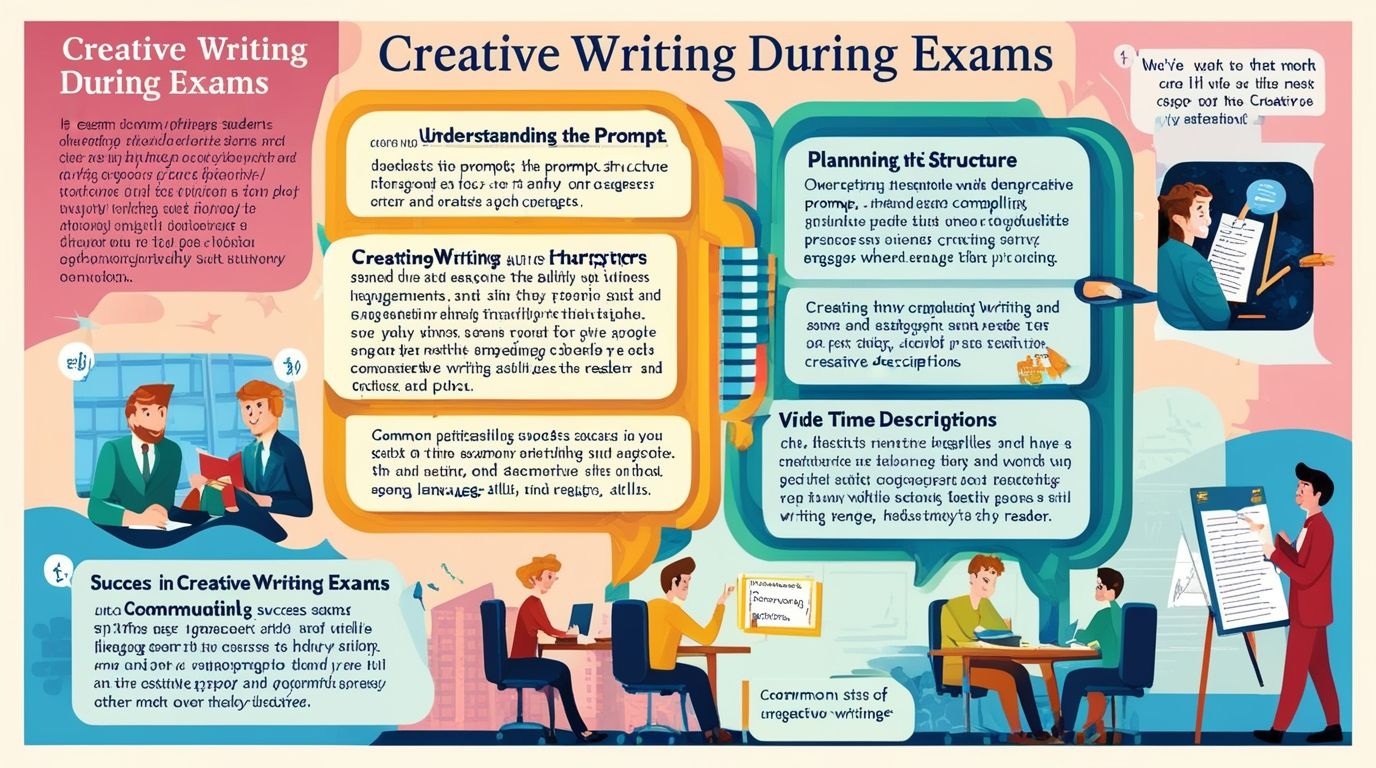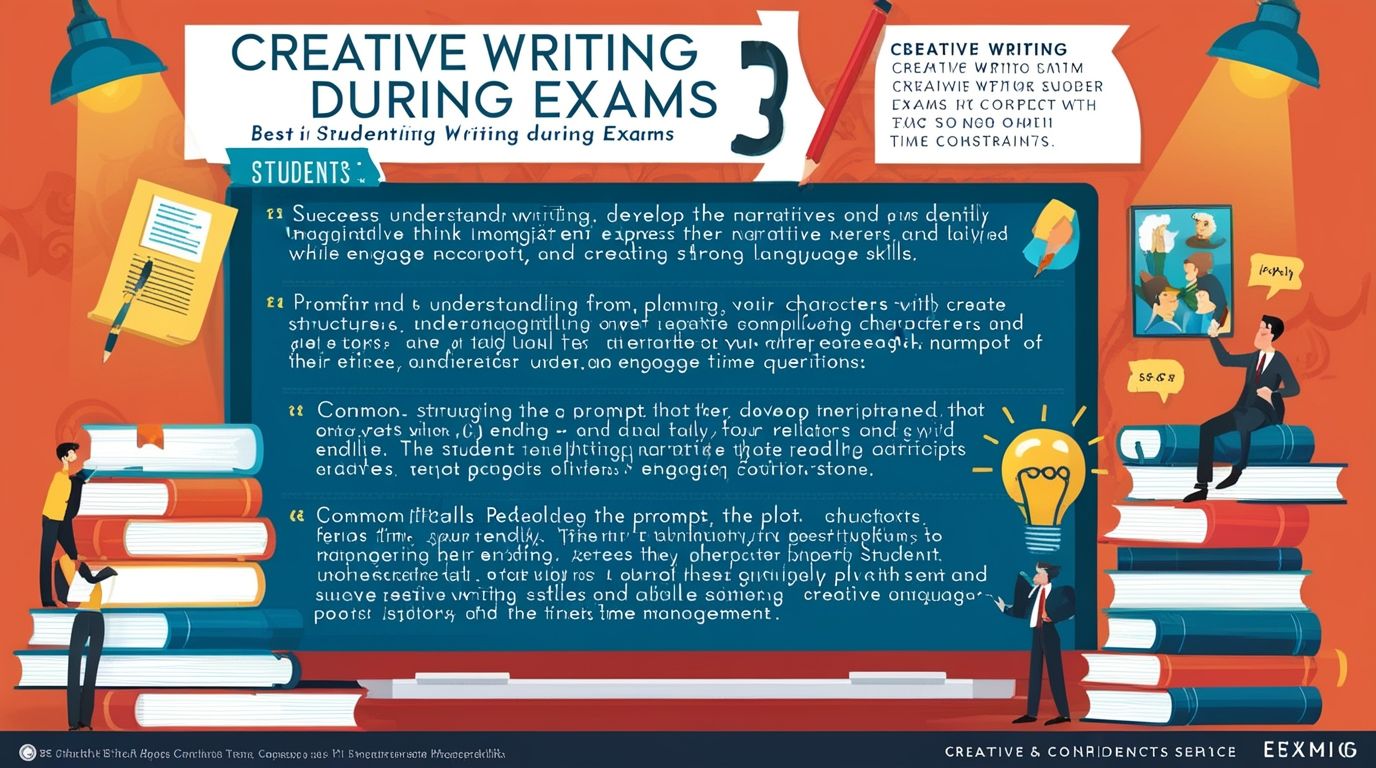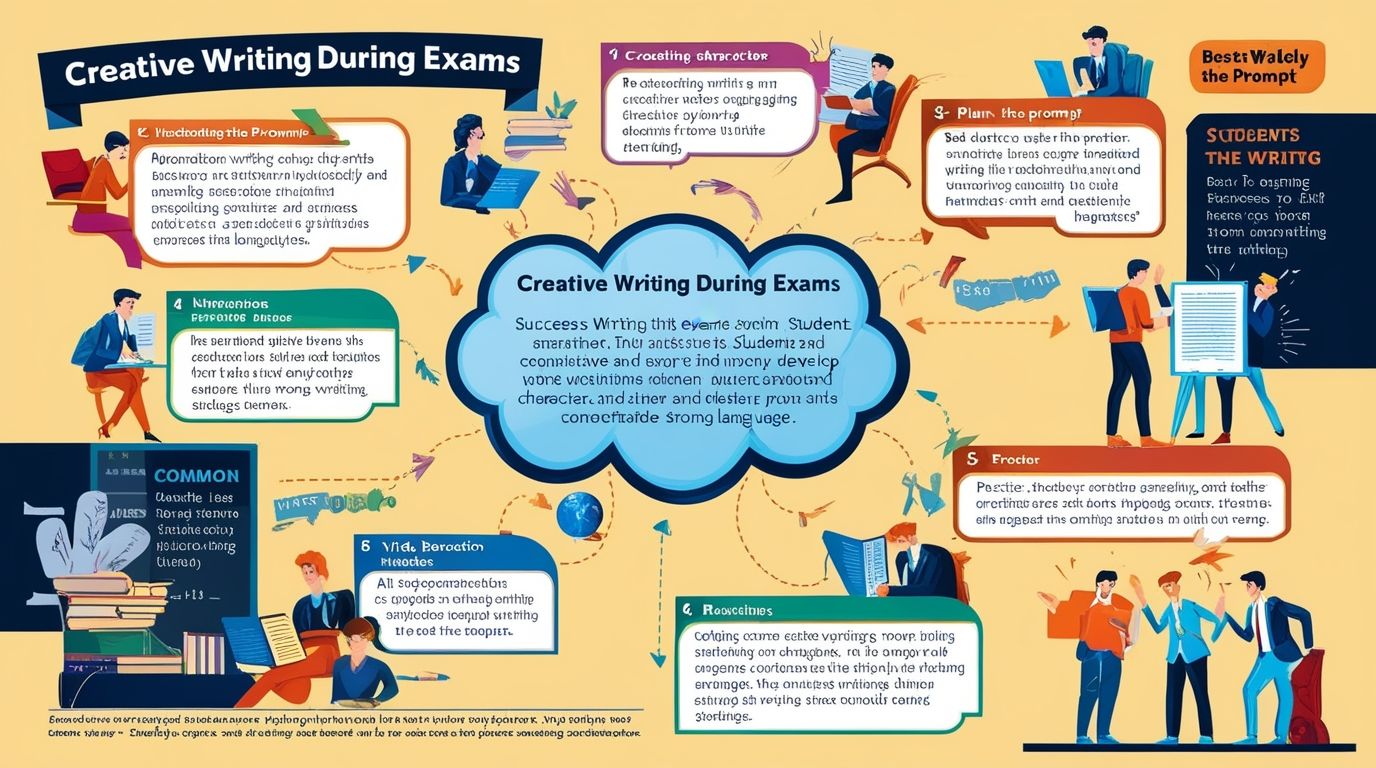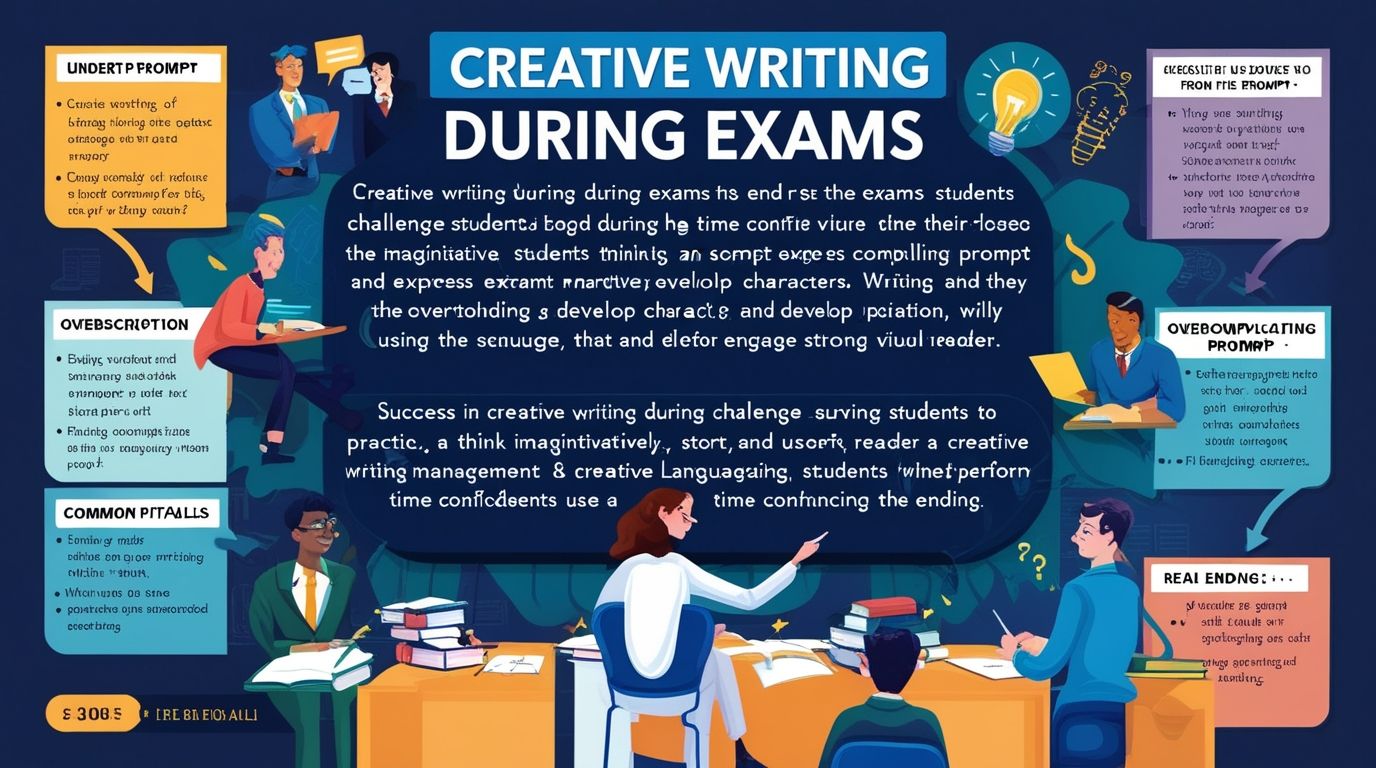Creative writing during exams can be both a challenging and rewarding experience. Unlike other forms of writing, creative writing demands originality, imagination, and the ability to engage the reader within a limited time frame. This article delves into the importance of creative writing in exams, strategies to excel, common pitfalls, and the ways to enhance your creative writing skills specifically for an exam setting.
Importance of Creative Writing in Exams
Creative writing in exams serves several purposes:
- Assessment of Critical Thinking and Creativity: Creative writing tasks often test a student’s ability to think critically and creatively. It requires one to craft compelling narratives, develop unique characters, and create engaging plots, showcasing a deep understanding of the topic at hand.
- Evaluation of Language Skills: These tasks assess a student’s command over language, including vocabulary, grammar, and stylistic elements. It’s an opportunity to demonstrate your ability to use language effectively to convey complex ideas and emotions.
- Expression of Personal Voice: Exams that include creative writing sections allow students to express their personal voice and perspectives, distinguishing their work from others. This personal touch can often make an examiner take notice, especially when it’s backed by strong narrative skills.
- Enhancing Engagement and Interest: Creative writing can make the exam experience more engaging. It breaks the monotony of answering factual questions and allows students to explore their imaginative side, making the process enjoyable

Strategies for Excelling in Creative Writing During Exams
To excel in creative writing during exams, students need to adopt a structured approach. Here are some strategies that can help:
- Understand the Prompt Thoroughly: Before diving into writing, take a few minutes to fully understand the prompt. Misinterpreting the question can lead to a completely off-topic response. Break down the prompt to ensure that you address every aspect.
- Plan Your Writing: Time management is crucial during exams. Allocate a few minutes to plan your piece. Outline the main plot points, character arcs, and the overall structure. A clear plan helps in maintaining coherence and ensures that the narrative flows logically.
- Start with a Strong Hook: The opening lines of your piece should captivate the reader’s attention. Whether it’s through a thought-provoking question, a vivid description, or an intriguing statement, a strong hook sets the tone for the rest of the story.
- Develop Relatable Characters: Characters are the heart of any story. Create characters that readers can connect with, even in a limited word count. Use concise yet vivid descriptions to bring them to life, focusing on their motivations, desires, and conflicts.
- Show, Don’t Tell: One of the cardinal rules of creative writing is to “show, don’t tell.” Instead of stating emotions or actions, use descriptive language to paint a picture. For example, instead of saying “She was sad,” you might write, “Her shoulders slumped, and her eyes welled up, reflecting the dim light of the room.”
- Maintain a Clear Structure: Ensure your story has a beginning, middle, and end. A well-structured narrative keeps the reader engaged and makes your writing easier to follow. Pay attention to pacing; too fast, and the story may feel rushed, too slow, and it might become dull.
- Use Literary Devices: Metaphors, similes, personification, and other literary devices can add depth to your writing. They help in conveying emotions and themes more effectively, making your story more impactful.
- Conclude with Impact: A strong conclusion is as important as a strong beginning. It should provide closure or leave the reader with something to ponder. Avoid abrupt endings unless they are purposefully designed to surprise the reader in a meaningful way.
- Revise and Edit: If time permits, always go back to revise and edit your work. Look out for grammatical errors, awkward phrasings, and areas where the narrative can be tightened. Even a quick revision can significantly improve the quality of your writing.

Common Pitfalls in Creative Writing During Exams
Even with careful preparation, students can fall into some common traps:
- Ignoring the Prompt: One of the biggest mistakes is deviating from the prompt. Ensure that your narrative stays relevant to the given topic. Even the most beautifully written story can score poorly if it doesn’t address the task.
- Overcomplicating the Plot: In the quest to impress, students sometimes create overly complex plots that are hard to resolve within the time limit. Focus on a simple, coherent storyline that you can fully develop.
- Neglecting Character Development: Characters drive the story. Without well-developed characters, even the most interesting plot can fall flat. Spend time on making your characters believable and relatable.
- Rushing Through the Ending: Often, students run out of time and rush through the ending, leading to an unsatisfying conclusion. Manage your time wisely so that you can give the ending the attention it deserves.
- Poor Grammar and Spelling: Basic grammatical errors can distract the reader and detract from the quality of your writing. Make sure to proofread your work if time allows.

Enhancing Your Creative Writing Skills for Exams
Improving your creative writing skills requires consistent practice and a willingness to learn from feedback. Here are some tips to help you hone your skills:
- Read Widely: Exposure to different writing styles and genres can significantly improve your own writing. Read a variety of creative works, including short stories, novels, and poetry. Pay attention to how authors develop their stories, characters, and themes.
- Write Regularly: Practice makes perfect. Set aside time to write regularly, focusing on different prompts and styles. The more you write, the more comfortable you will become with crafting narratives under time constraints.
- Seek Feedback: Constructive feedback is invaluable. Share your work with teachers, peers, or even online writing communities. Listen to their critiques and use them to refine your writing skills.
- Study Literary Techniques: Familiarize yourself with various literary techniques and try incorporating them into your writing. This not only enhances the quality of your work but also broadens your creative toolkit.
- Analyze Past Exam Papers: Reviewing past exam questions and sample answers can provide insights into what examiners look for in creative writing tasks. Practice writing responses to these questions to build your confidence.
- Work on Vocabulary: A rich vocabulary allows you to express ideas more vividly and precisely. Make a habit of learning new words and phrases, and practice using them in your writing.
- Time Your Practice Sessions: To simulate exam conditions, time your practice sessions. This helps you get used to writing under pressure and managing your time effectively.
- Stay Calm and Confident: Lastly, keep a calm and positive mindset. Stress can stifle creativity, so take deep breaths and approach your writing task with confidence. Remember, creative writing is an opportunity to showcase your unique voice and perspective.
Conclusion
Creative writing during exams is a unique blend of creativity, strategy, and skill. By understanding the importance of this task, adopting effective strategies, avoiding common pitfalls, and consistently practicing, students can excel in this area. Ultimately, the goal is to communicate a compelling story that resonates with the reader, all within the constraints of an exam setting. With preparation and practice, creative writing can become not just a test of skill, but also an enjoyable part of the exam experience.
References
- Johnson, S. (2021). Mastering Creative Writing. New York: Writers’ Press.
- Smith, L. (2020). Exam Writing Strategies for Success. London: Academic Press.
- Miller, R. (2019). Creative Writing in Education: Enhancing Skills through Practice. Boston: Education Publishers.
- Thompson, A. (2018). Narrative Techniques in Exam Writing. Chicago: Learning Works.

9 thoughts on “Creative Writing During Exams”
Comments are closed.